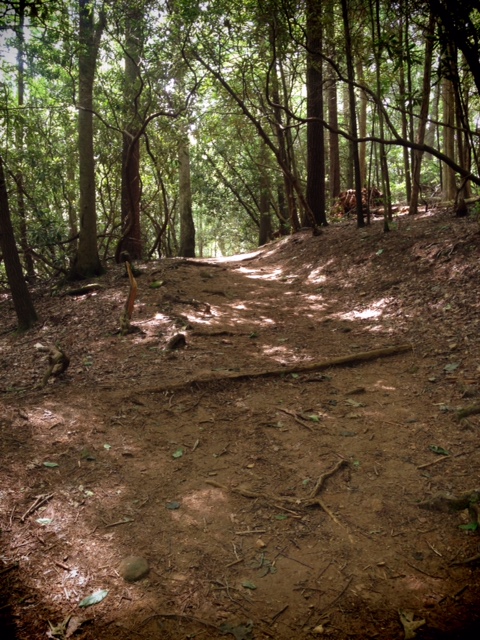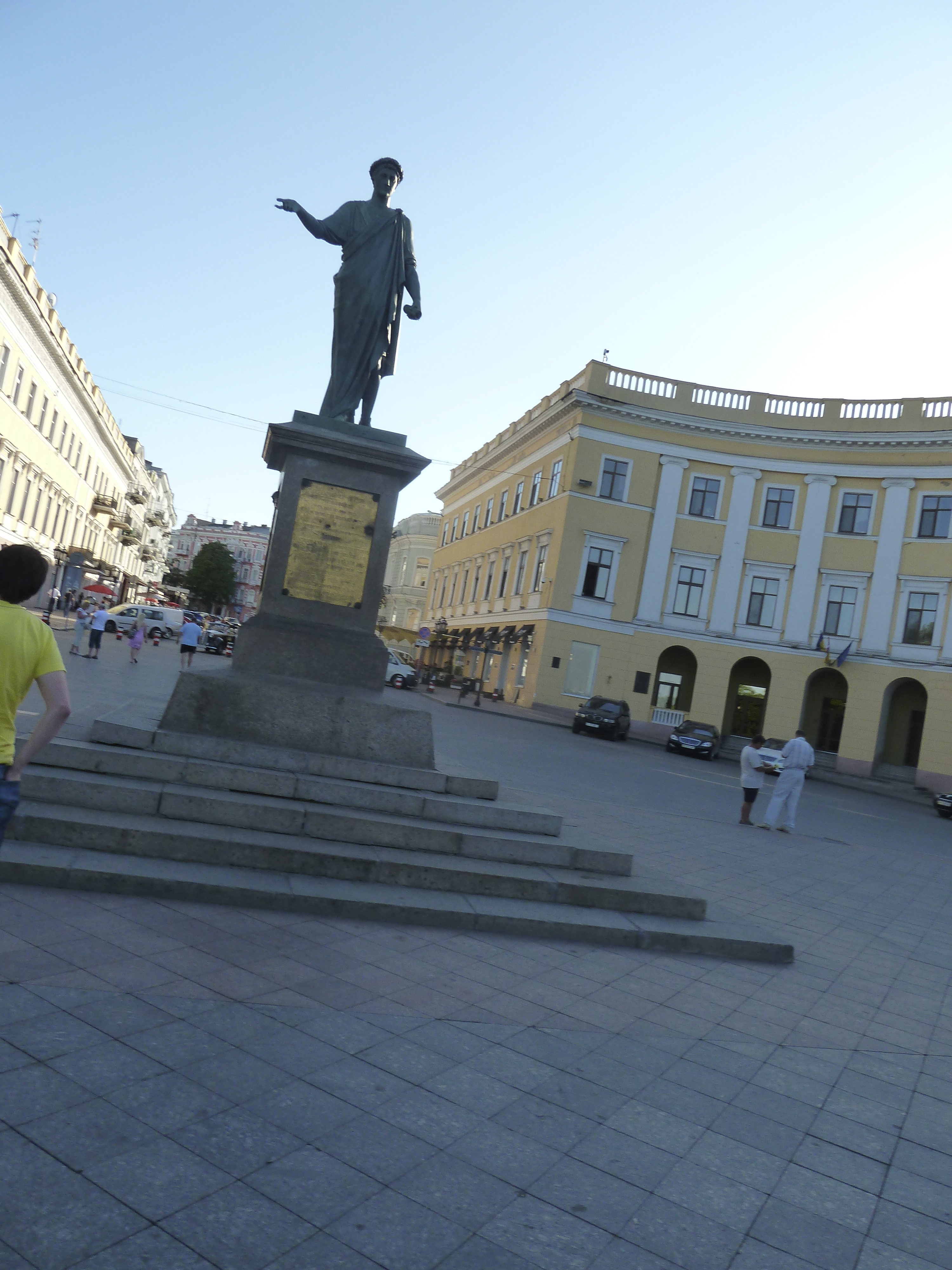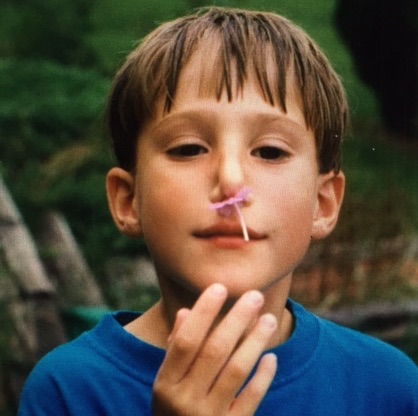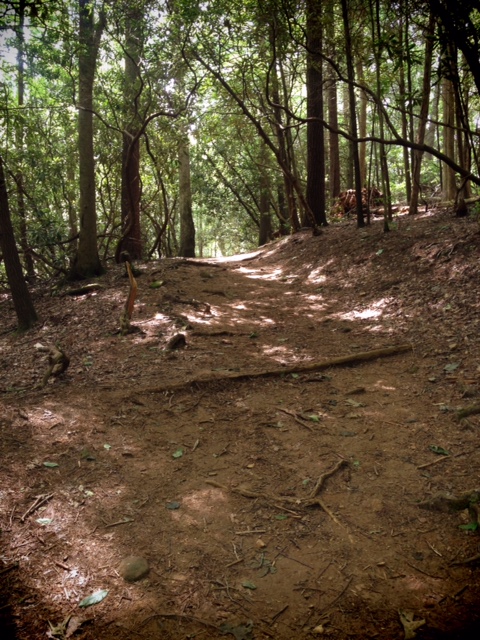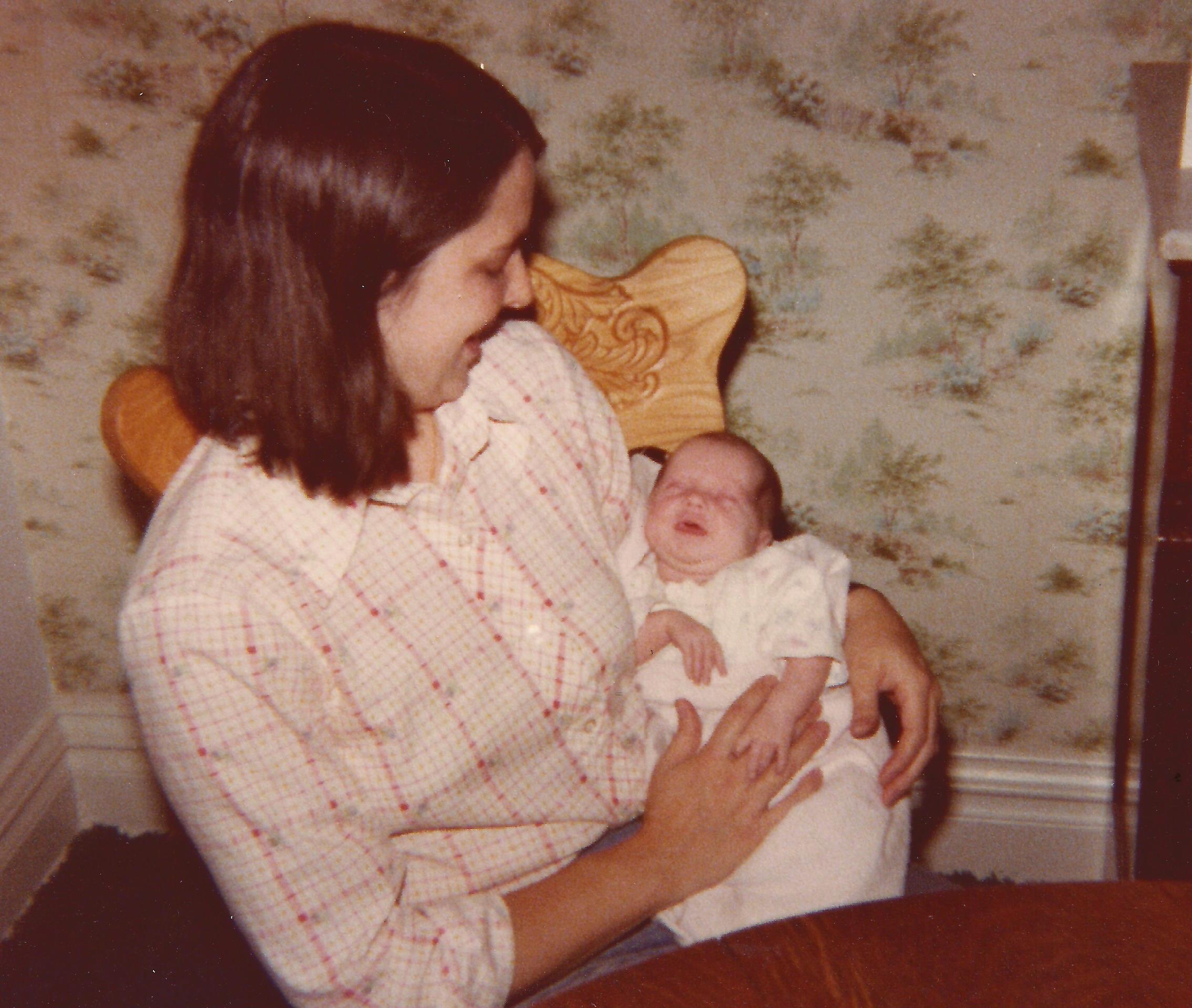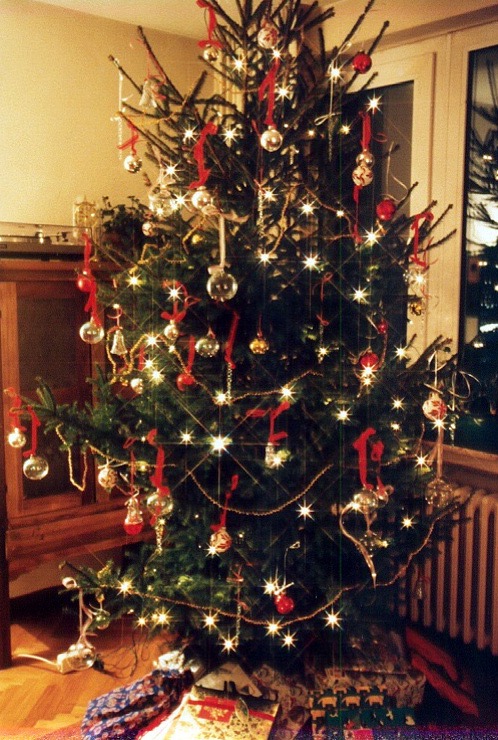I remember the way the flame of the candle on the bedside table flickered against the air. It beat against it, and then it stilled and rose up higher than it was when it was shaking. I willed myself to rise up too, out of my body and through the ceiling. I wasn’t supposed to be there underneath the weight of a man I hated more with each thrust and groan. We all like to think we’re fighters, but I wasn’t that day or any of the other days he made me lay underneath him in the three years since it started.
Family isn’t supposed to hurt you, but when I said no and begged him to stop, he grabbed my throat and squeezed and told me to shut up, so I didn’t tell him not to anymore. I shook like the flame and cried, though I didn’t notice the tears until they blurred my view of the candle that he said he lit to make me understand that he didn’t want to hurt me. The fire and wax disappeared into a blur of orange and red. I closed my eyes and when it was over, the weight of a heavy fist came down on my stomach. The violence shocked me; he rarely hit me. He pounded his fist hard against my hip bone, then an opened hand smacked my face over and over until I thought my teeth would loosen from my gums and fly from my lips. He was angrier than he’d ever been before even though I complied. My legs rose and kicked hard; he stumbled back and cursed before leaving the room.
I found my jeans crumpled up in the corner between the armoire and the window. I couldn’t figure out why they were so hard to get on, my legs wouldn’t stay still, my hands wouldn’t stop shaking. There was blood running down my thigh and I had the sudden urge to stop it before it got on the carpet. Wobbling like a toddler I pulled on my pants, zipped them up and looked to the bed worried that blood had gotten on the duvet. No, I saw. He always remembered to put down a towel.
I found my keys and I fled, wincing as I sat down behind the wheel of my car but not caring enough about the pain to go slow. I needed to drive, to get away. I needed the pain that burned inside me to end. He pulled out of the driveway in his truck behind me. He smiled and waved, and more than hating him, in that moment I hated myself for not being able to do what I always said I’d do. Kill him. Scream. Rage against rape and the murder of my childhood. I hadn’t done one of those things, and as I drove down the road going nowhere, I wondered why it felt like I’d let it happen, why it felt like I hadn’t done enough to stop it, when all I’d wanted in the whole world was for it to end.
My phone rang. Scared that it was him, I flipped it on its face as I got onto the interstate towards Atlanta, thankful that the afternoon rush hour wasn’t as bad as usual, and most of the lanes were moving quickly. Without thinking much, I went in the direction of the place that felt like home. Two hours went by as I passed through the city and wound my way up into the mountains, where my mom took me hiking when I was younger and we’d had no money for summer camps or music classes. The woods were free and beautiful, and gas had been cheap. We’d pack a picnic lunch of jam sandwiches and apples and sing along to our favorite Carole King CDs as we drove north with the windows down and the hot summer air whipping through the car. It became the place we went when we needed guidance and reprieve. It was our holy place, and nothing I ever did or was done to me meant anything as long as I was in the safe embrace of those hills, underneath the endless canopy of evergreens.
I let out a breath I didn’t know I’d been holding when I passed through the town of Dahlonega. It shook out of me like it had a life of its own, and I had to pull over to the side of the road and heave and throw up. When I was there the world outside didn’t exist. The sidewalks in the small town square were touched by memories of my mom and I walking past shops and browsing antiques, buying fudge and bear claws; we wouldn’t talk about my dad leaving or not having enough money for the electric bill. We existed in a place without consequence. The life I now lived was a slow death. Part of my soul was chiseled away with every act of violence, in every moment that I stayed quiet when I wanted to scream. But Dahlonega was home base, a reprieve that felt like safety. When I stood my legs hurt like I’d gone on a run I hadn’t been adequately prepared for, and I wondered why that was, but then I thought of the smell of him and I threw up again and stopped wondering.
I hadn’t eaten all day and began to feel dizzy, and when the feeling didn’t pass I gripped the wheel hard and tried to concentrate on the road, to focus on the lines as they moved. I wasn’t used to driving in the mountains. The winding roads demanded my concentration and the very best driving I could muster. I’d never been there on my own before, and it was harder than I thought it would be when I’d watched my Mom. We stopped coming long before I had my license, when Mom remarried and she no longer yearned for anything that wasn’t her new husband. I’d asked her a few times if she ever missed our days hiking together and talking and she said, “Of course, but things can’t always stay the same.”
When I saw the sign on the side of the road for boiled peanuts I slowed down and pulled over and only after doing so thought about the danger that might come to me outside a remote mountain town. I tried to tell myself that the day couldn’t get any worse, and that I needed to eat more than I needed to imagine dangers about mountain men peanut sellers who doubled as serial killers.
“Hi,” I said to the man sitting behind the card table piled high with stacks of paper bags. He nodded his head slowly and looked below my eyes, at my face, where I realized there must be marks from the beating I’d taken earlier. I forced myself to keep facing him and I saw that he was very old. He was wearing a dirty flannel shirt tucked in tight to dirtier jeans hidden underneath a huge pot belly that threatened the integrity of the buttons on his shirt.
He didn’t ask me how I was doing, but mentioned the weather and how crowded the mountain towns had seemed lately. “It’s that damned city,” he said. “Growin’ bigger every day.” I just wanted the peanuts, but I made polite small talk until he said, “So what are you doin’ up this way?”
The muscles in my stomach began to tighten, and I rubbed my arm that was tender to the touch before hiding both arms behind my back. I was used to defending myself against men who thought a young girl shouldn’t hike alone. I’d been stopped on several of the trails I frequented closer to home and lectured on safety, and psychopaths, and told multiple times to go home, and usually I relished an argument with men whose idea of what was proper didn’t match up with mine, but I didn’t feel like nodding politely. I felt like getting somewhere safe so that I could cry, without the fear of being interrupted until I was finished. I couldn’t do that at home or in my car, and the sorrow was building so that I thought I might do it in front of the old man. I didn’t decide to be honest as much as honesty burst from my lips not caring that I didn’t want it out.
“I was hurt today,” I told him balling my fists up, clenching hard so I wouldn’t fall apart. “And I just,” I stuttered as I finished, “I just needed to go up onto the trail for the night.” The man stood and looked at me and said nothing for a long time. I thought he wanted more of an explanation so I told him, “I forgot to bring food, and I didn’t eat today.”
I pulled money from my wallet and held it out to him but he didn’t take it. I just wanted to take the peanuts and go. The old man stumbled back a few steps then turned his head to the side and whistled. Down the dirt road behind him, where I suspected he lived, a dog came running, dust from the gravel flying out behind him. “This here’s Tiger.” The old man pet the dog between the ears. “He’ll go with you up there tonight.”
I was confused at first, but then I realized that he meant for me to take the dog. I began to protest, and he held up his hand. “Don’t you fight me on this one girlie or I’ll go on down the road, get my sleepin’ duffle and come up there with you myself.”
My grandfather always called those who lived in North Georgia the hill people. He’d regaled me with tales of their generosity during the Great Depression when his family ended up there. He’d said that even though there was hardly enough food for their own families, most had given a generous amount to them when they’d come up from South Georgia looking for work. He said that you could travel the whole world and never find the kind of people you’d find in those mountains. “It’s almost startling how much they care,” he had told me.
“Okay,” I said to the man, extending my hand, almost waving the money at his face. I didn’t want the old man to come with me on my hike. “But I really don’t need to take your dog.”
He ignored me and went on talking. “There’s nothin’ better than an old mutt when you’re sad.” He looked at me with a question in his dark eyes. “Ya know that?”
I nodded, but I’d never had a dog.
The old man spoke to the dog and told him to go with me. I craved solitude, but the idea of someone beside me who couldn’t talk and ask questions was suddening appealing.
“He’ll be a help in case you run into snakes or anything,” the old man said. He bent down under his table and picked up a cooler, opened it and put in four of the brown paper bags that held boiled peanuts. “Ain’t much in there, some sandwiches and a coke, but you’ll need more than these ole’ things to get you through.” Then he handed me the cooler and told me to keep my money.
“Drop him back by tomorrow. I’ll be out here,” He said. The day had been too much, and so I didn’t argue anymore. I just opened the car door and let the dog named Tiger in and waved goodbye. It wasn’t until I got to the trail, that I realized I hadn’t asked the old man’s name. I looked for a tag on Tiger but saw none, which I guessed was typical for dogs that belonged to the mountain people. I always kept my backpack and a blanket in my car, so I dumped the contents of the cooler into the backpack and started up the trail with Tiger leading the way, stopping every few minutes to turn his head back to me as if asking why I was so slow.
My legs hurt. My vagina was on fire. My stomach growled. I wanted to run but didn’t think I could, so I walked on and didn’t start crying until dusk melted into dark, the light of my flashlight helping me see only what was right in front of my feet. By the time we got to the top of the mountain where the trees opened up and there was nothing but a flat slab of rock, I couldn’t breathe. I sat down and I wailed, not afraid of anyone hearing. Tiger whimpered then made his way to me and sat down in my lap, turning his face into my chest and nestling against me. I hugged him even though he smelled like dirt and urine, and I cried hard while he licked my face until all I could do was pull the blanket from my pack and lay down on the hard rock and fall asleep with Tiger pressed up next to me.
When I woke up the sun was just peeking out over a mountain in the distance, and the horror from the day before met me in the orange rays of sunlight climbing up the sky. I rubbed Tiger’s ears and gave him some water and half of a sandwich, and I wished that it had all been a dream, but it wasn’t, so as the sun rose up I told Tiger all about it, and he laid his head on my knee like he understood. I closed my eyes and breathed in the mountain air, tinged with the scent of dog, and I knew that I was strong enough to leave home and never go back. I felt sore all over from sleeping on the ground, and from what drove me to sleep on the ground. I’d come to the mountain and stood on the edge and looked down into the treetops, wondering if I would be brave enough to jump, or to walk back down the mountain and into a new life. Tiger was there behind me, whining for more sandwich, so I turned to him and gave him all that was left, and I promised the smelly mutt that I would stay alive. I had to; I knew that he’d probably never make it home without me.
Callie Valentine left college to take a job in Israel as a nanny, and to travel as much as she could. Her grandmother convinced her that adventure would help her writing more than a degree she couldn’t afford; but the verdict is still out on that. Her nonfiction has been published on Kveller, a Jewish lifestyle website; and in The Jewish Press. Her short fiction has been published in The Woven Tale Press. She is currently focusing on fiction writing and is working on a novel called Things My Father Never Told Me about a young woman who learns more about her father from the notes scrawled in the beloved books he left behind than she had when he was alive. Callie lives in Wisconsin where she can most often be found roaming hiking trails with her husband, two children, and their hound dog Scout. Follow her on Twitter @calliewriting.
